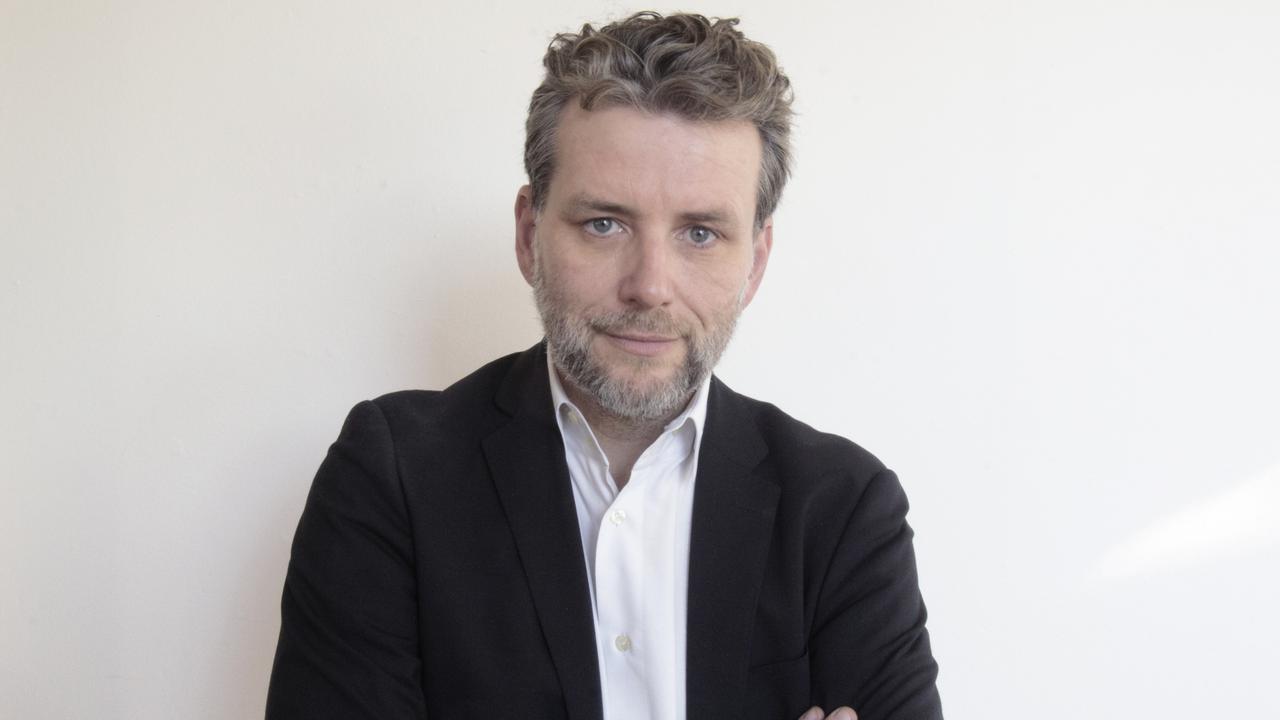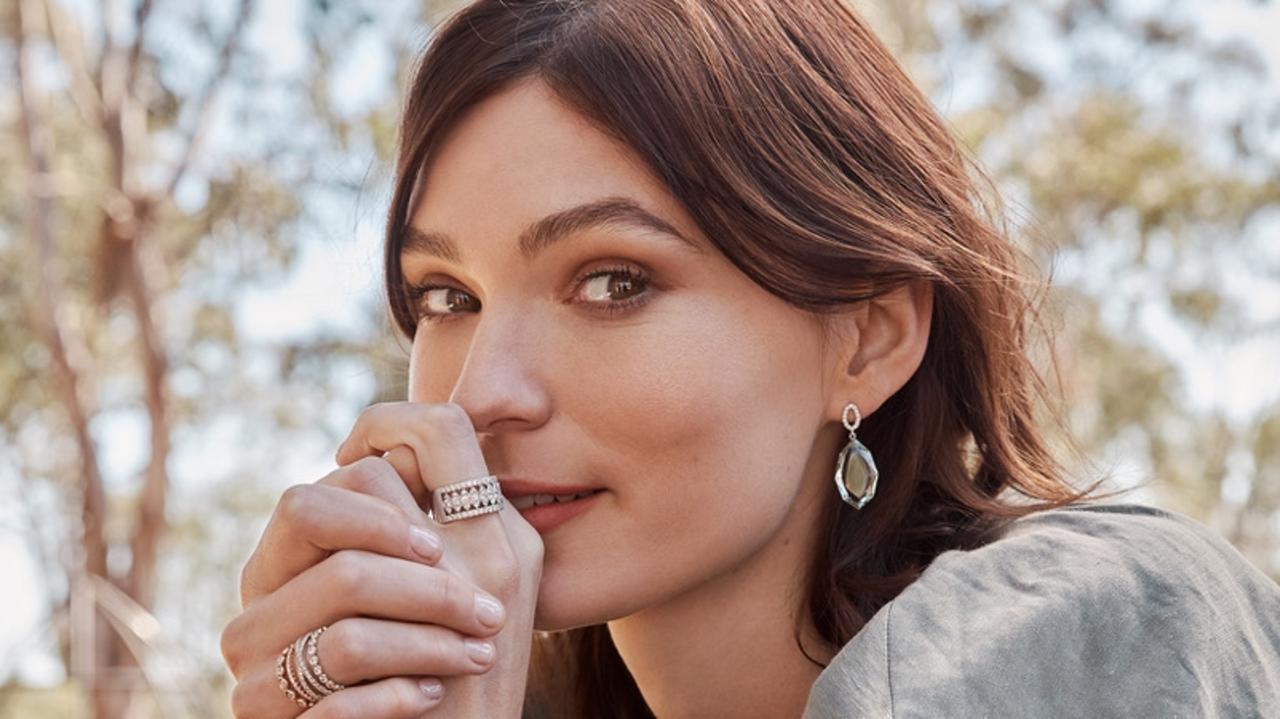Jimblah and Goji prove home is a state of mind
When a guy steeped in hip hop meets a girl who loves dance music, sparks will fly as they do with Jimblah and Goji.

Arts
Don't miss out on the headlines from Arts. Followed categories will be added to My News.
James Alberts, better known as rapper Jimblah, moved around a lot when he was kid.
From Broome to Darwin and beyond, the 34-year-old remembers hours, days, in the back seat of the family car travelling the vast expanses of our continent while his dad cranked the tunes on the stereo. Van Morrison, Jimi Hendrix, Stevie Ray Vaughn – it was an education in the classics.
“I remember being in awe of how much he lost himself in the music, singing so loud and dancing in the car,” Jimblah says.
“Those are my first real memories of music.”
While the Alberts family traversed northern Australia, “visiting one family here and spending time with that family over there”, Jimblah’s mum always wanted him to pursue his education in Adelaide.

“Darwin is her home town – Larrakia mob – but there was more opportunity down here at the time,” he says.
It was in the City of Churches that the young Jimblah was exposed to a thriving hip hop scene, and the seed of something that would go on to change his life was planted.
“I was really grateful that we moved down here because I had the Adelaide hip hop scene right on my doorstep,” Jimblah says.
“I was probably 12 or 13 when really discovered hip hop. I heard Shorty Wanna Be A Thug, the Tupac song – what blew my mind was the story, how he wove the story in. That’s when it hit me and I just wanted to know more about this music.”
The fire was truly lit, however, after Jimblah started taking workshops with Australian rapper and community worker Morganics, the man who explained the elements of hip hop to aspiring artist.
“He was first to break down hip hop culture for me,” Jimblah says.
“The elements, the DJing, breaking, sampling, the drum breaks. He told me rap is something you do, hip hop is something you live. He told me how it came about through standing up to oppression and finding your space to do your own thing, and that’s when everything clicked. I was like, ‘no wonder I love this so much’.”

Fast forward a few years and Jimblah cuts an album – Face The Fire – and follows it up with another, Phoenix. They’re praised for their thoughtful lyrics, seamless flow and banging beats. He takes out the Hilltop Hoods Initiative in 2007, lands Triple J’s Unearthed Artist of the Week and is named in Rolling Stone’s Top 20 Acts to Watch for 2013.
High profile support slots and great reviews flow. Everything is going to plan, and Jimblah has even started cutting his third album, when he suddenly realises that he burning out, fast.
“There was a lot of pressure from community, on both sides of the fence, about what an indigenous hip hop artist should be and look like, so on one hand I was dealing with that,” he says.
“Plus I’d started to get a better sense of what the industry really was like and how crazy that can be. But also, the second album I did, Phoenix, that was just a hard space to be in you know. Talking about those issues for that long, I feel like I gave everything I had to that album and that I had nothing left to give. I almost finished a third album, then I stepped back and said, ‘nah, you need a break’.”

That break is now, thankfully, over. Homeward Bound is Jimblah with collaborator – in both the musical and life sense – Georgia “Goji” Humphreys, and the pair’s debut record Whatever You Do, Don’t Panic drops today on respected Sydney-based hip hop label Elefant Traks.
Growing up immersed in dance music, Goji brings not only soulful vocals but also a more electronic feel to Jimblah’s signature style.
It’s not the first time they’ve worked together – Goji worked on both Jimblah albums – but it’s their first proper collaboration.
“I worked on Face the Fire and Phoenix, but Homeward Bound is a journey to where we want to be,” Goji says. “Once we started working on the record and mixing that hip hop with electronica – it became clear that this was something we just had to do.”
There are a number of themes – concepts even - on Whatever You Do, Don’t Panic, but the main message, Jimblah says, is that we all need to slow down and start treating each other better.
“I suppose the concept is that maybe the journey home IS home,” he says.
“We’re always in a rush to get to different places, always in such a hurry. And it’s a look at where humanity is at right now, like ‘fam, we’re all in this together so let’s work together’. The more we freak out and are guided by hate and frustration the less clarity we’re going to have and the harder it’s going to be for everyone.”
For Jimblah, Whatever You Do is another chapter in the story of indigenous hip hop that’s rapidly changing the face of Australian music.
“You have these artists like Baker Boy and Briggs that are telling so many enriching stories that are so good for our soul as a nation,” he says.
“On one hand you have AB Original and Briggs being so hard-edged and political, and then you have Baker Boy singing in language and talking about the importance of dance. It’s all beautiful.”
And working the woman he loves to produce such positive music has put Jimblah in a place where he’s finally ready to tackle that third solo record he put on hold.
“As soon as we started rolling Homeward out it became clear that I’d dealt with the things that were standing in the way,” he says.
Whatever You Do, Don’t Panic, on Elefant Traks
out May 3



